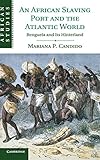Support H-Net | Buy Books Here | Help Support the NBN and NBN en Español on Patreon | Visit New Books Network en Español!
- African Studies
- African American Studies
- American Politics
- American Studies
- American South
- American West
- Asian American Studies
- Australian and New Zealand Studies
- British Studies
- Canadian Studies
- Caribbean Studies
- Central Asian Studies
- Chinese Studies
- East Asian Studies
- Eastern European Studies
- European Politics
- French Studies
- German Studies
- Iberian Studies
- India Studies
- Indian Ocean World
- Iranian Studies
- Irish Studies
- Israel Studies
- Italian Studies
- Japanese Studies
- Korean Studies
- Latino Studies
- Latin American Studies
- Mexican Studies
- Middle Eastern Studies
- Native American Studies
- Pacific Studies
- Polish Studies
- Russian and Eurasian Studies
- Southeast Asian Studies
- South Asian Studies
- Turkish Studies
- Ukrainian Studies
- Western European Studies
- World Affairs
- Animal Studies
- Anthropology
- Archaeology
- Business, Management, and Marketing
- Media
- Critical Theory
- Disability Studies
- Drugs, Addiction and Recovery
- Education
- Economics
- Finance
- Geography
- Gender Studies
- Genocide Studies
- Higher Education
- Human Rights
- Journalism
- Language
- Law
- LGBTQ+ Studies
- National Security
- Philanthropy
- Philosophy
- Policing, Incarceration, and Reform
- Political Science
- Politics & Polemics
- Public Policy
- Sex, Sexuality, and Sex Work
- Sociology
- Sound Studies
- Sports
- Urban Studies
- Big Ideas
- Celebration Studies
- Co-Authored
- Cover Story
- Historical Materialism
- History Ex Silo
- Interpretive Political and Social Science
- Invested Investor
- Landscape Architecture
- Late Antiquity
- Mormonism
- NBN Book of the Day
- NBN Seminar
- Postscript: Conversations on Politics and Political Science
- Practical History
- Preparing for Life After Grad School
- Psychology and Climate Change
- Syriac Studies
- The Chair: In The Room at the Fed
- New Books with Miranda Melcher

Oct 10, 2014
Thomas Sankara
An African Revolutionary
Summary
Thomas Sankara, often called the African Che Guevara, was president of Burkina Faso, one of the poorest countries in Africa, until his assassination during a military coup that brought down his government. Although his time in office was relatively short, Sankara left an indelible mark on his country's history and development. But as Ernest Harsch explains in his engaging biography, Thomas Sankara: An African Revolutionary (Ohio University Press, 2014), Sankara's influence extends beyond Burkina Faso. Sankara was a moral force and an ardent spokesman for African dignity and struggle against neocolonial forces and Western economic domination. Harsch traces Sankara's life from his student days to his recruitment into the military, his early political awakening, and his increasing dismay with his country's extreme poverty and political corruption. Sankara and his colleagues initiated economic and social policies that shifted Burkina Faso away from dependence on foreign aid and toward a greater use of the country's own resources to build schools, health clinics, and public works. Although Sankara's sweeping vision and practical reforms won him admirers both within and without Burkina Faso, a combination of domestic opposition and factions within his own government and the army led to his assassination in 1987.
Harsch has written the first English-language book that relates the story of Sankara's life and achievements. Based on extensive firsthand research in Burkina Faso as well as interviews with Sankara himself, this brief biography will give this neglected hero of the African revolution the attention he deserves.
































































































